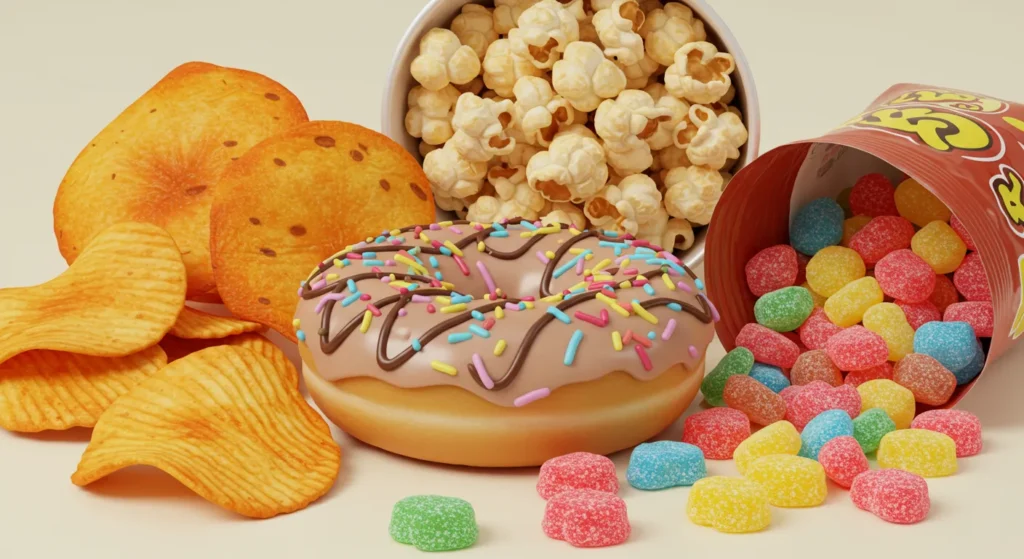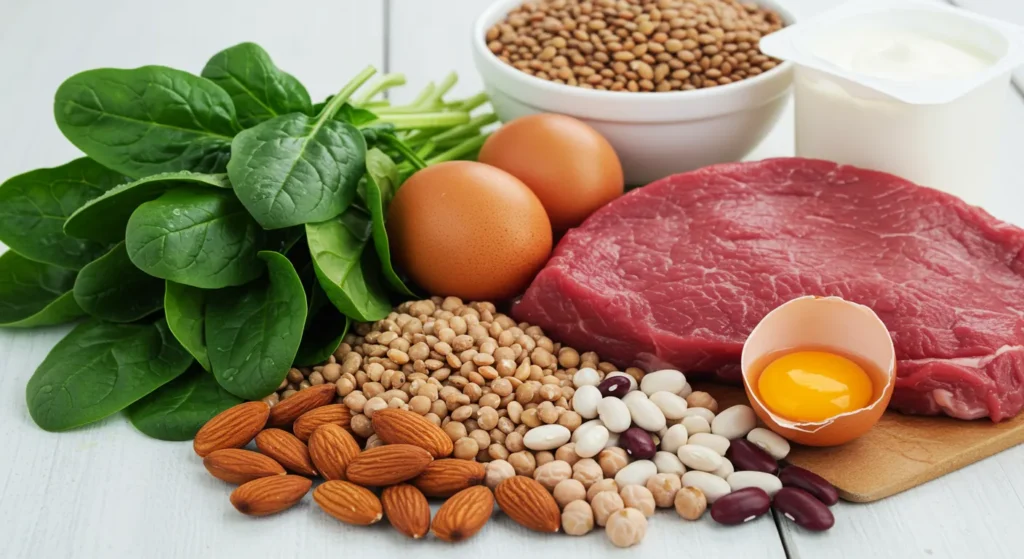Worried that greasy burgers, sugary snacks, or processed meals might be the reason behind your thinning hair? You’re not alone. Many people wonder: Does eating junk food cause hair loss?
In this post, we’ll explore how poor dietary habits may damage your hair, what science says about food and follicle health, and how to restore your locks through smart nutrition. Let’s uncover the hidden link between junk food and hair fall—so you can eat better, feel better, and grow healthier hair.
What Is “Junk Food”?

“Junk food” refers to highly processed, calorie-dense items with little nutritional value. These foods are typically high in sugar, trans fats, salt, and artificial ingredients.
Common examples include:
- Fast food (burgers, fries, fried chicken)
- Sugary snacks (cookies, cakes, candy)
- Processed meats (sausages, salami, nuggets)
- Sodas and sugary beverages
These meals might be convenient, but they often deprive the body and hair follicles of essential nutrients.
How Diet Impacts Hair Health — The Science Link
Nutrient Deficiencies
Hair follicles are among the most metabolically active structures in the body. They need a constant supply of iron, zinc, biotin, vitamin D, and protein to stay healthy. Junk food diets are low in these nutrients, increasing the risk of telogen effluvium—a condition where hair shifts into the shedding phase prematurely.
Hormonal Effects
High-sugar foods spike insulin levels, which may increase androgen hormones like DHT (dihydrotestosterone). Elevated DHT is a known cause of pattern hair loss, particularly in men.
Inflammation & Scalp Health
Processed and fried foods can trigger chronic inflammation and oxidative stress. This harms the scalp environment, potentially leading to conditions like seborrheic dermatitis, folliculitis, or poor circulation, which can hinder hair growth.
What the Research Says About Junk Food & Hair Loss
Scientific studies increasingly suggest that poor dietary habits contribute to hair thinning:
- High-sugar diets can raise blood glucose and insulin, stimulating androgen production and triggering hair follicle miniaturization.
- Greasy, fried foods are linked to inflammation and hormonal imbalance.
- Some junk foods, especially high-mercury fish like certain tuna or swordfish, may disrupt the hair cycle and damage follicles.
What You’ll Miss with a Junk-Food Heavy Diet
Consistently eating junk food can rob your body—and your hair—of crucial nutrients.
Micronutrient Gaps
- Iron: Prevents anemia-linked hair thinning
- Zinc: Supports follicle structure and oil regulation
- Vitamin A & E: Promotes scalp health
- Biotin: Essential for keratin production
- Vitamin D: Regulates hair follicle cycling
Protein Deficiency
Without enough protein, your body may divert resources from non-essential processes like hair growth to support core functions.
Scalp Inflammation
Preservatives and trans fats trigger inflammatory pathways, damaging hair follicles and reducing growth potential.
Competing Foods That Actually Promote Hair Growth
Ditching junk food doesn’t mean bland meals—it means smarter choices for healthier hair.
Iron-Rich Sources
- Spinach
- Lentils
- Red meat (in moderation)

Biotin & Protein
- Eggs
- Almonds
- Legumes
- Greek yoghurt
Healthy Fats & Omega-3s
- Fatty fish (salmon, sardines)
- Walnuts
- Avocados
Antioxidant Vitamins
- Berries (rich in vitamin C)
- Citrus fruits
- Sweet potatoes (beta-carotene)
Vitamin D & E Support
- Fortified milk
- Mushrooms
- Sunlight exposure
- Sunflower seeds
How to Reverse Damaging Effects — A Practical Timeline
Month-by-Month Recovery Roadmap
Month 1: Remove junk food and hydrate well
Month 2: Add iron- and biotin-rich foods
Months 3–4: Begin noticing stronger strands and reduced shedding
Month 5+: Improved density, especially around the temples and crown
Sample Weekly Menu Plan
- Breakfast: Eggs + whole grain toast + orange juice
- Lunch: Lentil soup + spinach salad + yogurt
- Dinner: Grilled salmon + quinoa + roasted vegetables
- Snacks: Nuts, fruit smoothies, boiled eggs
Optional Support
- Biotin supplements (as prescribed)
- Vitamin D3
Lifestyle & Hair Care Optimizations
Stay Hydrated
Drink at least 8 glasses of water daily for scalp circulation.
Scalp Hygiene
Use a sulfate-free shampoo to reduce irritation and inflammation.
Gentle Styling
Avoid heat tools, harsh brushing, or tight hairstyles that pull at the root.
Sleep, Stress, and Exercise
- Aim for 7–8 hours of sleep
- Manage stress (it spikes cortisol, which affects hair cycles)
- Regular exercise boosts blood flow to the scalp
FAQs
Can one junk-food binge cause hair loss overnight?
No, a single cheat day won’t cause visible hair fall. But repeated poor eating habits over weeks/months can.
How long before diet changes show hair improvement?
Typically 3–6 months, depending on the damage and response time.
Is it okay to eat fast food occasionally?
Yes, moderation is key. Balance occasional indulgence with nutrient-rich meals.
Can supplements replace healthy food?
Supplements should support—not replace—a balanced diet.
What foods should I completely avoid?
Limit high-mercury fish, deep-fried items, and sugary drinks.
Take the Next Step
If you’re concerned about hair loss and wondering whether your diet might be to blame, it’s time to take action. Book a consultation with Dr. Rana Irfan, an ABHRS and ISHRS certified surgeon in Islamabad, today to receive a personalized nutritional and hair restoration assessment. We’ll guide you with expert advice, lab testing, and proven treatment options that restore hair naturally and safely.
👉 Book Your Consultation Now – Dr. Rana Irfan, Hair Restoration
